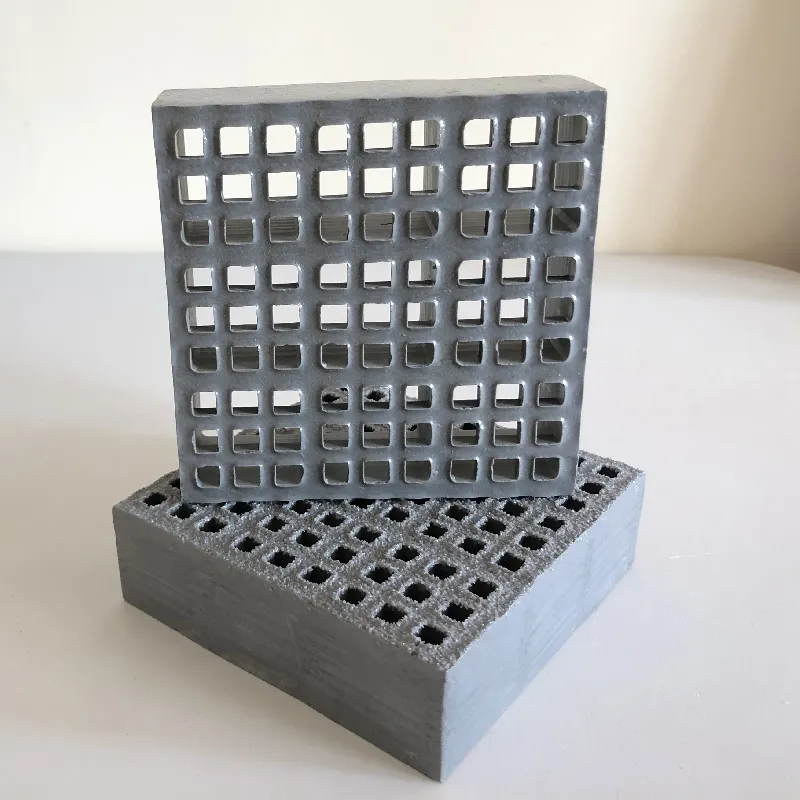loading...
- No. 9, Xingyuan South Street, Dongwaihuan Road, Zaoqiang County, Hengshui, Hebei, China
- admin@zjcomposites.com
- +86 15097380338
- Welcome to visit our website!
fiberglass rebar manufacturers
The Rise of Fiberglass Rebar Manufacturers Innovations and Benefits
In the construction industry, the materials used can significantly impact the durability, strength, and longevity of structures. In recent years, fiberglass rebar has emerged as a popular alternative to traditional steel rebar, attracting the attention of manufacturers and construction professionals alike. This article explores the innovations brought about by fiberglass rebar manufacturers and the benefits associated with its use in modern construction projects.
What is Fiberglass Rebar?
Fiberglass rebar, or Glass Fiber Reinforced Polymer (GFRP) rebar, is composed of a polymer matrix reinforced with fiberglass strands. Unlike traditional steel rebar, which is susceptible to corrosion and offers significant weight, fiberglass rebar is lightweight, non-corrosive, and offers superior tensile strength. These characteristics make it an attractive option for a variety of construction applications, from residential buildings to infrastructure projects.
Advantages of Fiberglass Rebar
1. Corrosion Resistance One of the primary advantages of fiberglass rebar is its resistance to corrosion. In environments where steel is exposed to moisture, chemicals, or saltwater, traditional steel rebar can degrade over time, compromising structural integrity. Fiberglass rebar, on the other hand, remains unaffected by these elements, providing a longer lifespan for structures and reducing maintenance costs.
2. Lightweight Nature Fiberglass rebar is significantly lighter than steel rebar. This lightweight feature not only makes transportation easier but also reduces the overall weight of the concrete structure. This can lead to lower foundation costs and an easier installation process, particularly in remote or challenging locations.
3. Tensile Strength Fiber-reinforced polymer rebar provides high tensile strength, making it ideal for various applications that require robust support. Its ability to withstand tension makes it particularly useful in applications such as bridge construction, parking garages, and other structures where tensile forces are prevalent.
fiberglass rebar manufacturers

4. Thermal Conductivity Unlike steel, fiberglass rebar has low thermal conductivity. This feature helps minimize the risk of thermal expansion and contraction, which can lead to cracking in concrete structures. As a result, the use of fiberglass rebar can enhance the overall durability and structural integrity of the built environment.
5. Cost Efficiency While the initial cost of fiberglass rebar can be higher than that of steel rebar, the long-term savings associated with its durability and resistance to corrosion often outweigh initial expenses. Reduced maintenance and replacement costs make it a wise investment for builders and project managers.
Innovations in Manufacturing
The evolution of fiberglass rebar manufacturing has also seen significant advancements. Manufacturers are now utilizing advanced composite materials and innovative production techniques to enhance the performance and reliability of their products. Automated manufacturing processes enable consistent quality, while improvements in resin formulations have resulted in stronger and more flexible rebar options.
Furthermore, ongoing research and development explore the incorporation of recycled materials into fiberglass rebar production, promoting sustainability within the construction industry. Such innovations align with the growing emphasis on environmentally friendly practices and materials, making fiberglass rebar an appealing choice for eco-conscious builders.
Meeting Industry Demand
As the construction industry embraces modern materials and methods, fiberglass rebar manufacturers are well-positioned to meet this demand. The response to climate change and the need for sustainable practices have prompted architects and engineers to seek alternatives to conventional building materials. This shift represents not only a significant opportunity for fiberglass rebar manufacturers but also a chance to revolutionize construction practices.
In conclusion, fiberglass rebar represents a significant advancement in construction materials, offering a host of benefits such as corrosion resistance, lightweight construction, and enhanced tensile strength. As manufacturers continue to innovate and improve their products, the adoption of fiberglass rebar is likely to increase, paving the way for more durable and resilient structures in the future. For builders looking to invest in sustainable and long-lasting solutions, fiberglass rebar is undoubtedly a noteworthy consideration.
-
GRP Structures: The Future of Lightweight, High-Performance EngineeringNewsJun.20,2025
-
FRP Water Tank: High-Performance Storage for Corrosive and Clean Water SystemsNewsJun.20,2025
-
FRP Square Tube: The New Industry Standard for Chemical and Structural ApplicationsNewsJun.20,2025
-
FRP Pultruded Profiles: The Ultimate Choice for Lightweight Structural StrengthNewsJun.20,2025
-
FRP Handrails: The Safer, Smarter, and Stronger Choice for Modern InfrastructureNewsJun.20,2025
-
FRP Grating: The Smart Solution for Durable, Lightweight Industrial FlooringNewsJun.20,2025
-
Why Choose a Galvanized Water Tank for Your Storage NeedsNewsMay.21,2025
